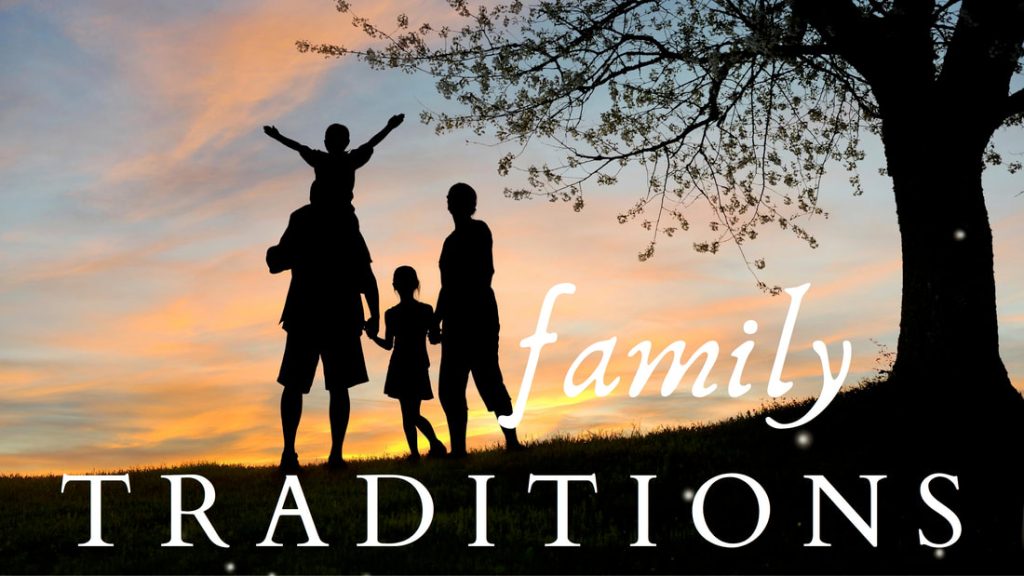
Family traditions are long-standing practices or customs that hold significance within a family unit, providing
a sense of continuity and identity. Family traditions can serve as a vehicle for storytelling, allowing families
to pass down cultural heritage, shared experiences, and personal histories from one generation to the next thus,
it can also be a powerful tool for building stronger, more meaningful relationships between family members across
different generations.
You will agree with me that in a rapidly changing world such as ours, which is filled with digital distractions,
societal pressures, and shifting values, our lives have become increasingly busy and our families more dispersed, hence
it’s easy to lose touch with the traditions that once brought us together. Therefore, it has become necessary for us to
revisit our family traditions or invent one if we do not have any. Furthermore, families can adapt traditions to fit
modern contexts, blending old customs with new elements. For instance, incorporating contemporary themes into
annual rituals or utilizing new mediums for sharing stories can make traditions resonate more with younger
generations. The ultimate goal is to cultivate an environment where families cherish their traditions as legacies
worth preserving, ensuring they endure for years to come.
It is pertinent to say here that family traditions vary from family to family, it depends on each family’s unique heritage
that binds their past, present, and future. For some, their traditions might involve activities, gifts, stories, and songs that
are continued throughout the family’s life together and passed down through generations. Some may come from religion
or a country’s culture, while others are invented by the families themselves such as reinforcing a child’s understanding
of who they are, where they come from, and what they believe, or, reinforcing important values such as
gratitude, generosity, faith, perseverance, or forgiveness or even things like sharing meals, prayers together and
creating a sense of security for the family members. Subsequently, for some it could be a movie that the family watch
every holiday season, or a special vacation spot they visit every summer that serve as times of bonding and relaxation
with loved ones. It could also be a special meal that is cooked every Christmas day.
Believe it or not, family traditions are more necessary now than ever in this modern age because they offer
numerous advantages that can positively impact family dynamics and individual well-being. By bringing family
members out of their very busy schedules and serving as a common ground between family members of different
ages, backgrounds, and interests, it provides opportunity for them to participate in shared activities and rituals as a
family and also develop a deeper understanding and appreciation of one another’s perspectives and experiences.
Family traditions can also serve as a source of comfort and resilience during difficult times. By drawing on
shared experiences and memories, family members can find strength and support in one another.
Nevertheless, while family traditions are essential, they must also be flexible enough to accommodate the changing
needs and circumstances of modern family life. As families grow and evolve, their traditions must also adapt to
remain relevant and meaningful. This may involve modifying existing traditions or creating new ones that better suit
the needs and interests of family members. Today’s families may need to incorporate modern elements into
traditional practices which can help keep family traditions fresh and engaging. One effective method is to involve
children in the planning and execution of traditional events. By assigning them age-appropriate roles or
responsibilities, children can actively participate, fostering a sense of ownership. For instance, during holiday
celebrations, children can assist in decorating, preparing food, or crafting traditional decorations. This not only
captivates young minds but also reinforces the value of their heritage.
Due to geographical separation as a result of work or education, as well as differing lifestyles, families often
encounter challenges in maintaining traditions amidst the fast-paced, ever-changing world. However, to navigate these
obstacles, families can embrace technology, utilizing video calls or social media to celebrate together, even from
afar. Creating virtual gatherings or shared experiences can help bridge distances, allowing relatives to engage in
traditions collectively.
Family traditions are not about perfection or performance ,they are about presence and
purpose. They are small rituals with deep meaning, intertwined into the fabric of family life. In honoring them,
families build stronger connections, preserve their heritage, and leave behind a legacy of love. Therefore, let us nurture and
cherish our family traditions, for in them lies the power to shape hearts, bridge generations, and create homes that stand
the test of time.





